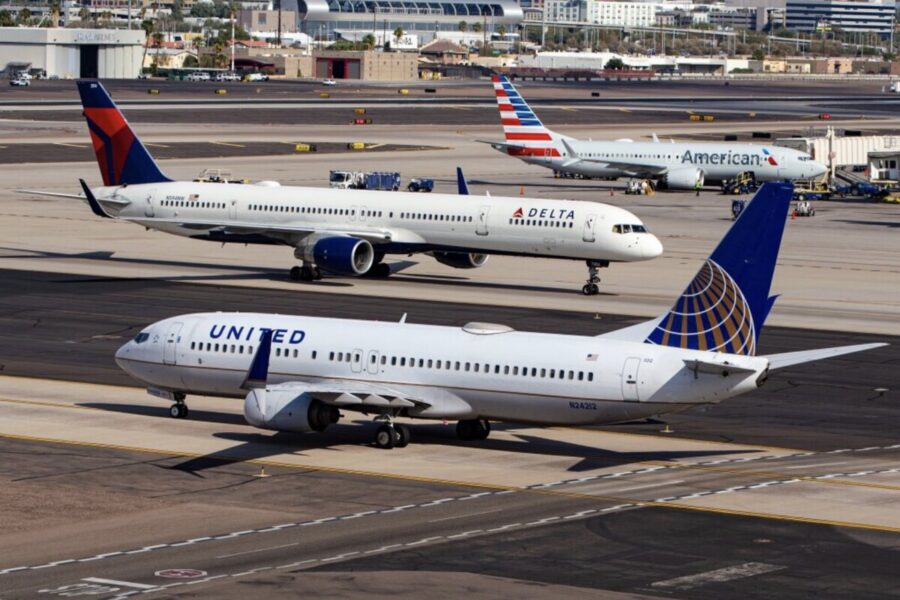Delta Avoids Shutdown Impact — CEO Warns of Risks from Controller Shortage

Delta Air Lines says it has largely escaped operational disruption from the ongoing U.S. government shutdown—yet CEO Ed Bastian cautions that if it drags on beyond about 10 days, pressures could begin to surface. Much of the concern centers on the persistent shortage of air traffic controllers, which has been exacerbated by increased sick calls during the funding lapse.
Bastian has told media that Delta’s operations are “smooth” today Oct. 9. In the week following the shutdown, the airline has maintained a ~99.99% completion rate on scheduled flights.
He reported that daily financial losses tied to the shutdown remain below $1 million per day—a relatively modest hit for an airline of Delta’s scale.
However, Bastian noted that if the shutdown extends beyond 10 days or more, the strain on the aviation system—especially in air traffic control staffing—could start to affect performance. He also repeatedly criticized U.S. air traffic control systems as being antiquated, pointing out inefficiencies that make operations more vulnerable under stress.
Airlines for America has urged the Federal Aviation Administration to achieve “quick wins” in a $12.5 billion air traffic control system overhaul, such as modernizing airspace, buying simulators and laying telecommunications fiber. “These initial wins will create tangible benefits for the traveling and shipping public, help coordinate messaging on progress and boost optimism on the prospects of moving the project to completion,” CEO Chris Sununu wrote in a letter to Transportation Secretary Sean Duffy. The FAA is short 3,500 air traffic controllers.
Airlines for America, formerly known as Air Transport Association of America, is an American trade association and lobbying group based in Washington, D.C. that has represented major North American airlines since 1936.
The Controller Shortage: A Growing Pressure Point
The backdrop to the shutdown is a longstanding shortfall in the U.S. air traffic control workforce. The FAA is already several thousand controllers below ideal levels, and during the shutdown more controllers are calling in sick as they continue to work without pay.
As staffing wane continues, the FAA has acknowledged that it may throttle traffic flow—delaying arrivals and departures to preserve safety margins.
Several airports, such as Denver, Newark, and Burbank, have already reported delays attributable to controller shortages.
Strength in Earnings Despite Uncertainty
Delta’s financials remain robust amid these headwinds. The carrier’s Q4 outlook, Q3 results beat expectations, driven by premium travel and corporate demand, and raised its earnings outlook for year-end.
Delta Air Lines projects fourth-quarter earnings of $1.60 to $1.90 per share and up to 4% revenue growth, surpassing analysts’ estimates, thanks to higher airfares and strong luxury travel demand. Delta’s third-quarter profit rose 11%, with adjusted earnings per share of $1.71 on $15.2 billion in revenue, both beating expectations.
The continued resilience offers Delta a buffer—yet the CEO’s warnings suggest he sees vulnerability beneath the surface.
What Could Show Up if Shutdown Persists
If the impasse continues:
- More delays and cancellations — especially at busy hubs, or during peak windows.
- Slot and flow restrictions as the FAA throttles traffic to match available controllers.
- Operational fatigue and morale issues in staff continuing to work unpaid.
- Longer-term disruptions to inspections, certifications, and maintenance oversight as broader FAA functions are hampered.
Delta’s current performance demonstrates its operational depth. But Bastian’s caution underlines a central fragility: the U.S. air system’s susceptibility to staff shortages. For now, Delta is sailing through relatively calm air—but the turbulence may yet arrive.
Related News: https://airguide.info/?s=delta+air+lines
Sources: AirGuide Business airguide.info, bing.com, reuters.com, ft.com
